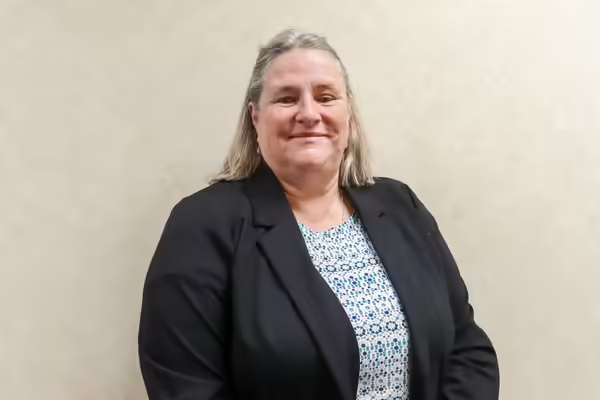
BOURBONNAIS, Ill. — For over 100 years, University of Illinois Extension has been the single source of truth for millions of Illinois residents who need answers to gardening, planting, horticulture, and production questions. With changing food and urban landscapes, it can be hard for residents to track down an expert when they run into issues. Now, a new Illinois Extension educator is poised to tackle the challenge backed with peer-reviewed, expert knowledge from Illinois’ largest educational institution.
Nancy Kuhajda, whose name will be very familiar to those throughout Will County for her over twenty-two years as an Extension program coordinator, now moves into the role of horticulture educator serving local communities.
“Nancy’s tireless dedication to the schools and organizations in Joliet and around Will County while she was a program coordinator has directly impacted youth and the community for the better,” says Illinois Extension County Director Marilu Andon, who serves three counties, “I am honored that she has agreed to serve in this new capacity of leadership and I look forward to seeing how her compassion and expertise impact the communities we serve.”
Kuhajda will provide leadership and programming for Extension programs related to horticulture in Grundy, Kankakee, and Will counties. With a focus on building innovative, high-impact programming, she says she is excited to share her love of gardening and nature with those in the communities Extension serves.
“There are numerous research studies indicating how beneficial horticulture experiences are for people in all life stages,” says Kuhajda, “I’m very passionate about helping people learn more about their environment and help bring an improved quality of life through gardening and nature to those throughout our community.”
One of Kuhajda’s major accomplishments when she served in her prior capacity was her dedication to bringing programming to underserved and unserved communities. This continues to be a priority that she will bring to her current role to include communities who are underserved, youth in urban environments, elderly in congregate housing, and those with disabilities:
“Growing your own food is a superpower,” says Kuhajda. “I’m passionate about teaching people how to grow their own food and understand how that affects everyday life and makes lives better. My ultimate goal in my work is to ensure everyone has equitable access to programs that make their life better. I’ve been fortunate to work with some amazing schools and organizations who are doing great work.”
Her work with Union Elementary School included weekly programming directly from Illinois Extension related to gardening, culminating in the sale of plants to allow students to see the direct impacts of their work.
“Extension’s commitment to excellence, inclusivity, and transformative education is a positive catalyst for societal change in our communities,” says Andon, “Extension’s mission is to develop educational programs, extend knowledge, and build partnerships to support people, communities, and their environments. Nancy’s new role is vital as Extension moves to sustain and restore natural resources in home and public spaces and continues our important calling of supporting strong and resilient youth, families, and communities.”
Kuhajda is based in the Will County Extension Office and can be reached at kuhajda@illinois.edu or by phone at 815-727-9296.
University of Illinois Extension develops educational programs, extends knowledge, and builds partnerships to support people, communities, and their environments as part of the state's land-grant institution. Extension serves as the leading public outreach effort for University of Illinois Urbana-Champaign and the College of Agricultural, Consumer and Environmental Sciences in all 102 Illinois counties through a network of 27 multi-county units and over 700 staff statewide. Extension’s mission is responsive to eight strategic priorities — community, economy, environment, food and agriculture, health, partnerships, technology and discovery, and workforce excellence — that are served through six program areas — 4-H youth development, agriculture and agribusiness, community and economic development, family and consumer science, integrated health disparities, and natural resources, environment, and energy.